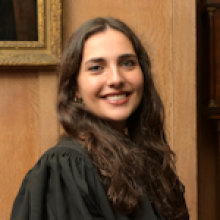People in an advantageous position sometimes act altruistically. However, their level of altruism might be context dependent, as inequalities might be seen as a problem or not depending on their origin. Sometimes, they arise from differences in people’s effort, and provide incentives to study and work hard, invest, and innovate. Other times, however, they restrict economic opportunities of the less well-off citizens, and usually, governments or other institutions make some adjustments to compensate for it.
I am developing a theoretical model to measure the levels of altruism needed to achieve work collaboration, where only the less-productive person is guaranteed to benefit from it in monetary terms. The hypotheses formulated from the theoretical model will then be tested experimentally. Furthermore, as an experimental hypothesis, I will also test whether different ways of allocating productivity levels has an effect on the levels of altruism. That is, if the origin of the inequality is important on human cooperative behaviour.
Although there is some research on economic games with unequal initial endowments, this model allows us to measure altruistic levels more accurately and in a cleaner way. This is possible as we vary the size of payoff differences, and also allow for a more granular choice on the amount of work collaboration. Existing research has not analysed what happens when the background of such endowment inequality differs.

